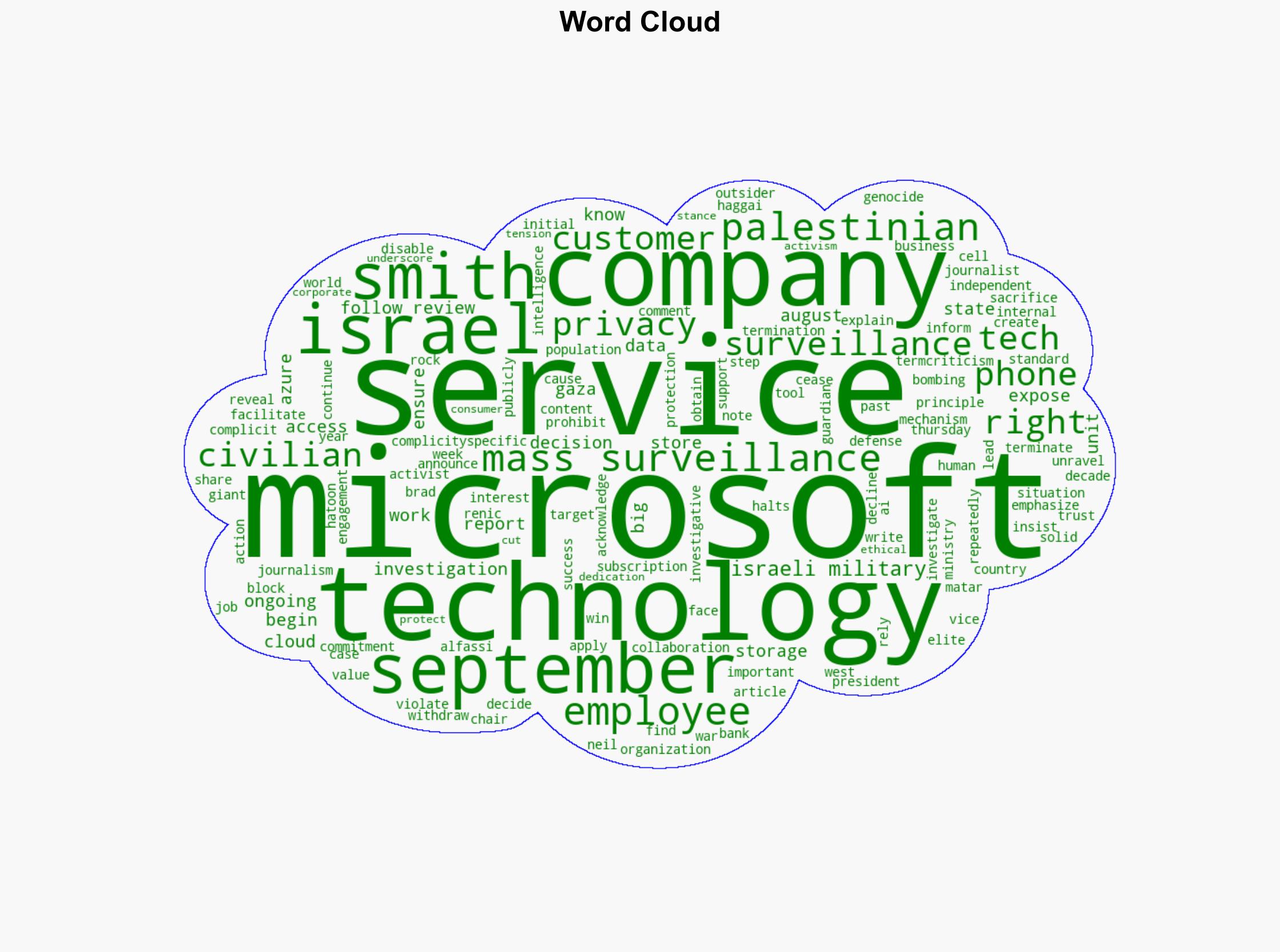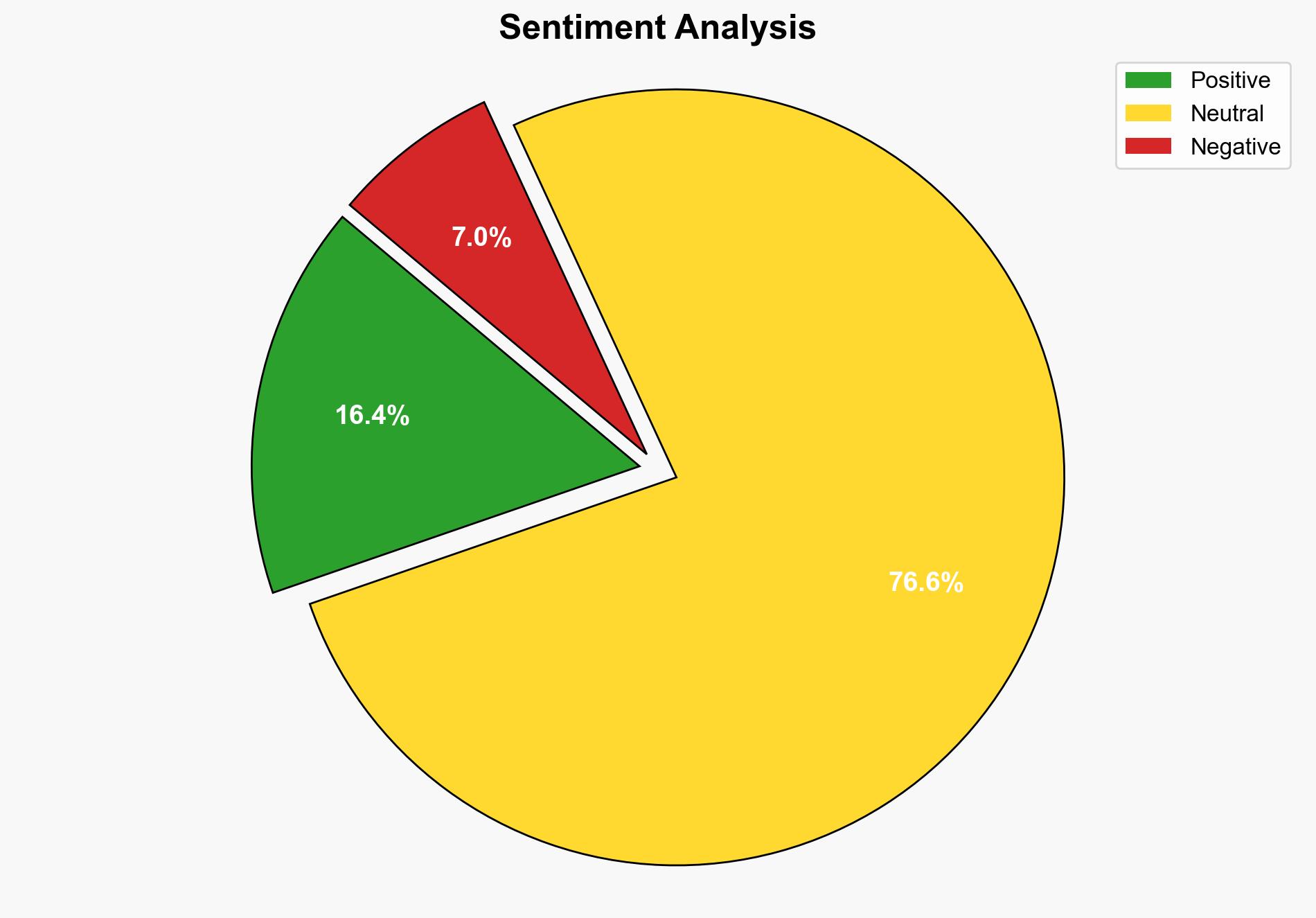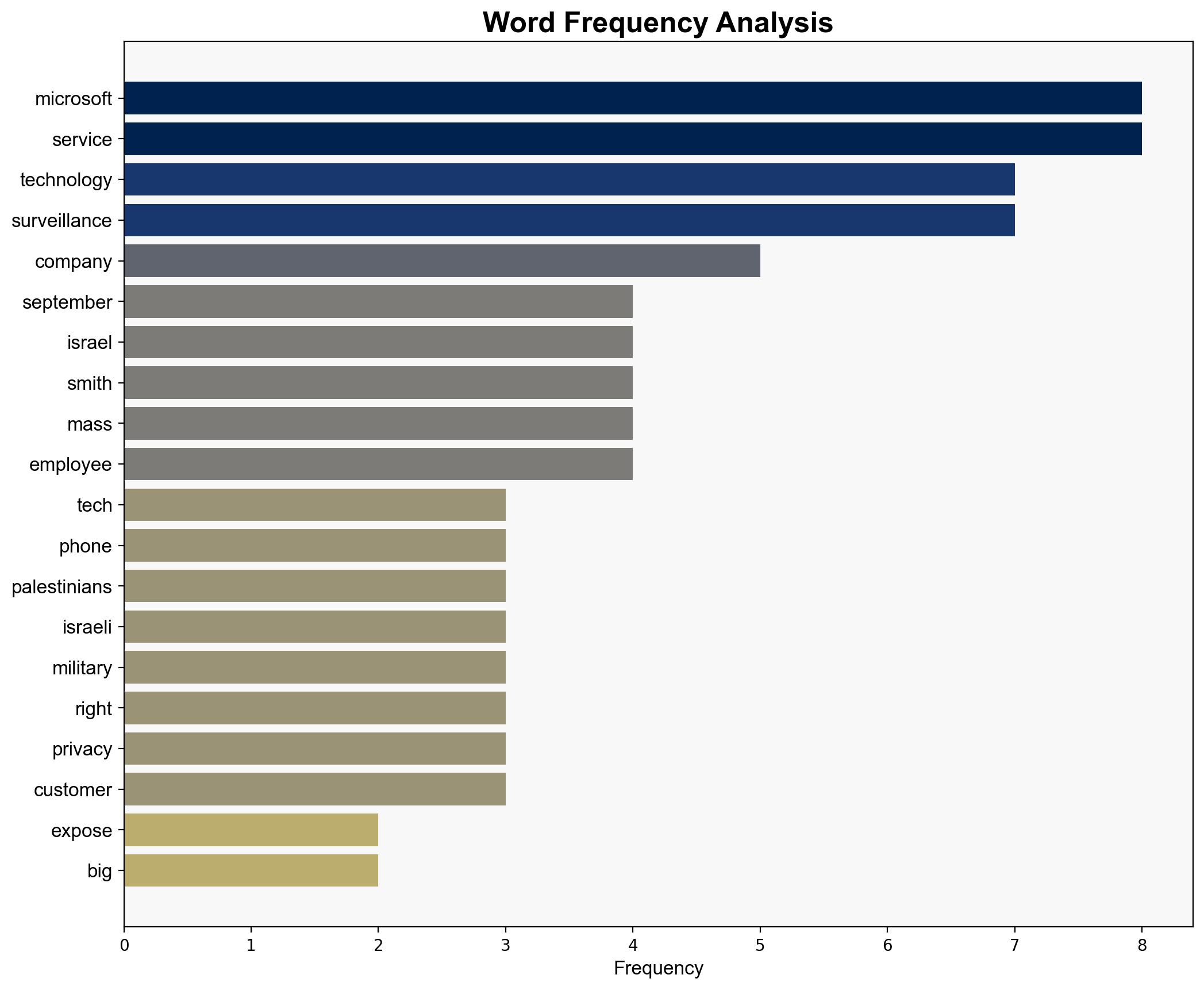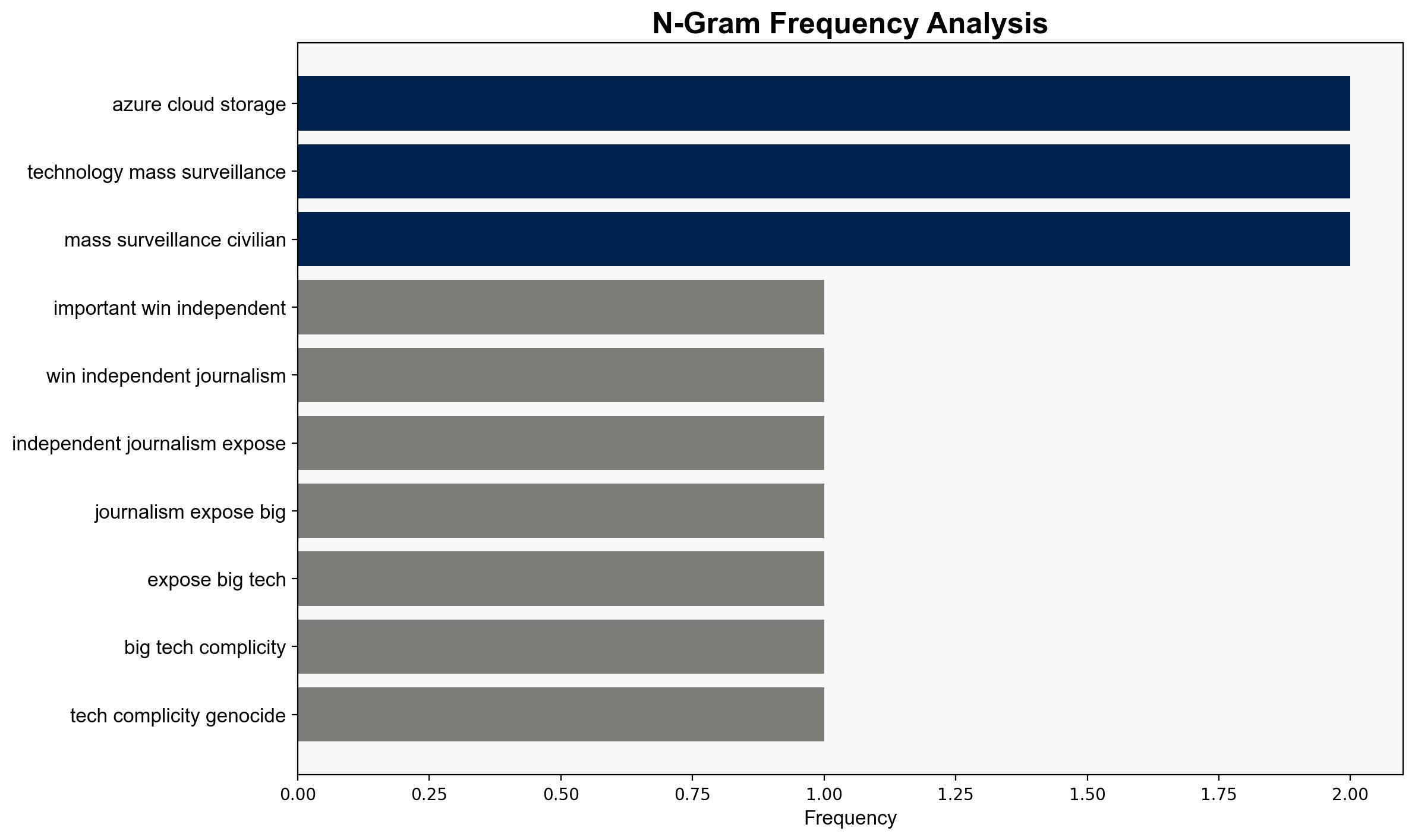Microsoft halts cloud services to Israeli military over surveillance concerns – Techpinions.com
Published on: 2025-09-27
Intelligence Report: Microsoft halts cloud services to Israeli military over surveillance concerns – Techpinions.com
1. BLUF (Bottom Line Up Front)
Microsoft’s decision to terminate cloud services to the Israeli military is primarily driven by internal ethical considerations and external pressures related to human rights. The most supported hypothesis suggests that Microsoft aims to align its business practices with its public commitment to ethical technology use. Confidence in this hypothesis is moderate due to limited transparency in Microsoft’s internal decision-making processes. Recommended action includes monitoring Microsoft’s future engagements in geopolitically sensitive areas to anticipate similar corporate decisions.
2. Competing Hypotheses
1. **Ethical Alignment Hypothesis**: Microsoft is halting services to the Israeli military to adhere to its ethical standards and respond to employee activism against the use of its technology for mass surveillance.
2. **Strategic Business Decision Hypothesis**: The decision is a strategic move to mitigate potential reputational damage and avoid future legal liabilities associated with human rights violations.
Using ACH 2.0, the Ethical Alignment Hypothesis is better supported by the emphasis on ethical technology use and employee activism highlighted in the source. The Strategic Business Decision Hypothesis lacks direct evidence but remains plausible given the potential for reputational risk.
3. Key Assumptions and Red Flags
– **Assumptions**: It is assumed that Microsoft’s internal investigation was thorough and unbiased. Another assumption is that employee activism significantly influenced the decision.
– **Red Flags**: Lack of detailed information on the internal investigation’s findings and the specific role of employee activism. Potential bias in reporting due to reliance on statements from Microsoft executives.
– **Blind Spots**: Possible geopolitical pressures or undisclosed negotiations with Israeli authorities are not addressed.
4. Implications and Strategic Risks
– **Economic**: Potential loss of business from Israeli military contracts, but could strengthen brand loyalty among ethically-conscious consumers.
– **Cyber**: Increased scrutiny on Microsoft’s cybersecurity measures and data handling practices.
– **Geopolitical**: May strain Microsoft’s relations with Israel, impacting future business opportunities in the region.
– **Psychological**: Sets a precedent for employee influence on corporate decisions, potentially encouraging similar actions in other companies.
5. Recommendations and Outlook
- Monitor Microsoft’s future business engagements in conflict zones to assess consistency in ethical standards application.
- Engage with stakeholders to clarify the scope and impact of the decision to preempt misinformation.
- Scenario Projections:
- Best Case: Enhanced brand reputation and increased market share among ethically-conscious consumers.
- Worst Case: Significant backlash from geopolitical stakeholders leading to loss of market access.
- Most Likely: Short-term reputational gains with minimal long-term business impact.
6. Key Individuals and Entities
– Brad Smith
– Haggai Matar
– Hatoon Alfassi
– Neil Renic
7. Thematic Tags
national security threats, cybersecurity, counter-terrorism, regional focus




